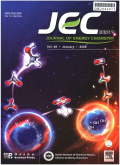- 钛学术文献服务平台 \
- 学术期刊 \
- 工业技术期刊 \
- 石油与天然气工业期刊 \
- 能源化学期刊 \
Recent progress in rate and cycling performance modifications of vanadium oxides cathode for lithium-ion batteries
Recent progress in rate and cycling performance modifications of vanadium oxides cathode for lithium-ion batteries
基本信息来源于合作网站,原文需代理用户跳转至来源网站获取
摘要:
The emergency of high-power electrical appliances has put forward higher requirements for the power density of lithium-ion batteries.Vanadium oxides with large theoretical capacities and high operating voltages are considered as prospective alternatives for the cathode of a new generation of lithium-ion batteries.However,the poor rate and cycling performance caused by the sluggish electrons/lithium transportation,irreversible phase changes,vanadium dissolution and large volume changes during the repeated lithium intercalation/deintercalation hinder their commercial development.Several optimizing routes have been carried out and extensively explored to address these problems.Taking V2O5,VO2(B),V6O13,and V2O3 as examples,this article reviewed their crystal structures and lithium storage reactions.Besides,recent progress in modification methods for the electrochemical insufficiencies of vanadium oxides,including nanostructure,heterogeneous atom doping,composite and self-supported electrodes has been systematically summarized and finally,the challenges for the industrialization of vanadium oxide cathodes and their development opportunities are proposed.

推荐文章
Geological cycling of potassium and the K isotopic response: insights from loess and shales
K isotopes
Loess
Shale
K cycle
The vanadium isotopic composition of L ordinary chondrites
V isotopes
L ordinary chondrites
Variation
Adsorption characteristics of copper ion on nanoporous silica
Nanoporous silica
Copper ion
Adsorption
内容分析
关键词云
关键词热度
相关文献总数
(/次)
(/年)
引文网络
引文网络
二级参考文献 (0)
共引文献 (0)
参考文献 (4)
节点文献
引证文献 (0)
同被引文献 (0)
二级引证文献 (0)
1979(1)
- 参考文献(1)
- 二级参考文献(0)
1995(1)
- 参考文献(1)
- 二级参考文献(0)
2008(1)
- 参考文献(1)
- 二级参考文献(0)
2015(1)
- 参考文献(1)
- 二级参考文献(0)
2021(0)
- 参考文献(0)
- 二级参考文献(0)
- 引证文献(0)
- 二级引证文献(0)
引文网络交叉学科
相关学者/机构
期刊影响力
能源化学
主办单位:
中国科学院大连化学物理研究所
中国科学院成都有机化学研究所
出版周期:
双月刊
ISSN:
2095-4956
CN:
10-1287/O6
开本:
出版地:
大连市中山路457号
邮发代号:
创刊时间:
语种:
eng
出版文献量(篇)
2804
总下载数(次)
0
总被引数(次)
7996
期刊文献
相关文献
推荐文献
- 期刊分类
- 期刊(年)
- 期刊(期)
- 期刊推荐
一般工业技术
交通运输
军事科技
冶金工业
动力工程
化学工业
原子能技术
大学学报
建筑科学
无线电电子学与电信技术
机械与仪表工业
水利工程
环境科学与安全科学
电工技术
石油与天然气工业
矿业工程
自动化技术与计算机技术
航空航天
轻工业与手工业
金属学与金属工艺
能源化学2022
能源化学2021
能源化学2020
能源化学2019
能源化学2018
能源化学2017
能源化学2016
能源化学2015
能源化学2014
能源化学2013
能源化学2012
能源化学2011
能源化学2010
能源化学2009
能源化学2008
能源化学2007
能源化学2006
能源化学2005
能源化学2004
能源化学2003
能源化学2002
能源化学2001
能源化学2021年第9期
能源化学2021年第8期
能源化学2021年第7期
能源化学2021年第6期
能源化学2021年第5期
能源化学2021年第4期
能源化学2021年第3期
能源化学2021年第2期
能源化学2021年第12期
能源化学2021年第1期

 免费查重
免费查重










